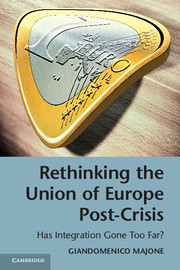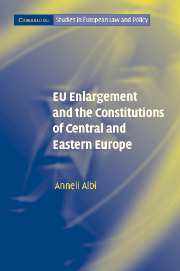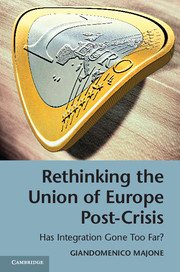Europe as the Would-be World Power
For fifty years European integration has been pursued according to an operational code based on rules which have never been publicly discussed. This book demonstrates the far-reaching consequences of the prioritisation of integration over competing values, fait accompli and other implicit rules of action. The willingness to sacrifice democracy on the altar of integration is demonstrated by the monopoly of legislative initiative granted to the non-elected Commission. Monetary union preceding, rather than following, political integration is a striking example of fait accompli, and the reason behind many holes in the EU system of economic governance. Until now, academics have avoided radical criticism; Giandomenico Majone argues that only an open acknowledgement of the obsolescence of the traditional methods can stem the rising tide of Euro-scepticism.
- Argues that the present EU system is unstable, thus offering a useful antidote to the opinion shared by both pro-integration and Euro-sceptic observers that the system is stable despite its limitations
- Combines theoretical discussion with analysis of events including the negative referendums in France, the Netherlands and Ireland. Readers are given the underlying reasons for the current discontent
- Examines the operational code of the EU, showing why problems such as the 'democratic deficit' were never satisfactorily resolved
- Discusses the unintended consequences of interactions between large-scale integration projects, an important topic thus far largely ignored by students of the EU
Reviews & endorsements
'This is a book written with unusual passion, even anger, and that increases its appeal. It exposes the inadequacy of the 'Community method' to meet the standards of democratic accountability to which we are accustomed at state level … This is a book that needs reading.' European Law Review
'… Majone describes the pathologies of European decision-making in a superb and comprehensive manner. … [his] sophisticated and complex analysis seems chiefly suited to European academics …' International Affairs
Product details
September 2009Adobe eBook Reader
9780511590832
0 pages
0kg
This ISBN is for an eBook version which is distributed on our behalf by a third party.
Table of Contents
- Introduction
- 1. An elitist project
- 2. Federalism old and new
- 3. Cryptofederalism
- 4. Unintended consequences of cryptofederalism
- 5. The mirage of social Europe
- 6. The democratic deficit and all that
- 7. The obsolescence of the traditional integration methods
- 8. Unity in diversity.







.jpg)


